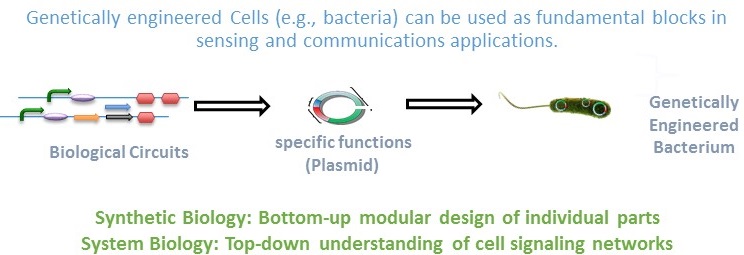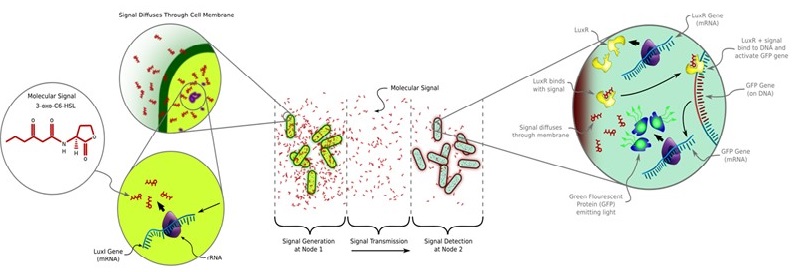Molecular-Communication among Synthetic Biological Agents

In this project, we study the Molecular Communication in networks of synthetic biological agents (such as E. coli bacteria). The design of biological networks using bacteria as the basic elements is initially motivated by a phenomenon called quorum sensing. In this phenomenon, bacteria of a population estimate their density in the environment by producing and sensing specific types of molecules.
Molecular Communication (MC) is a novel communication paradigm in which molecules are used to encode, transmit and decode information. MC is the primary method by which biological entities exchange information and hence, cooperate with each other. MC is a promising paradigm to enable communication between nano-bio machines, e.g., biosensors with potential applications such as cancer and disease detection, smart drug delivery, and toxicity detection. Prof. Fekri’s research is to establish the fundamentals of diffusion-based molecular communication and sensing via biological agents (e.g., synthetic bacteria) from a communication and information theory perspective, and design sensing systems and signaling schemes for reliable communication.

Due to high randomness in the individual behavior of the bacterium, reliable communication between two bacteria is almost impossible. Therefore, we use a population of bacteria in a cluster as a communication node in the network capable of molecular transmission and reception. This proposition enables us to form a reliable node out of many unreliable bacteria as shown in the figure. In order to study such networks, we study the functionality of bacteria-population transmitter and receiver nodes and the diffusion channel between two nodes as well. The maximum achievable rate of communication between two nodes in the network, signaling schemes and reliability are among the problems of interest. In general, we investigate